Contact Name: Stephanie DeLong Email: sdelong2@jhmi.edu The CFAR Adolescent and Young Adult International Scientific Working Group meeting on the 1st Thursday of each month, 10:30am-11:30am . Please contact Stephanie DeLong […]
Calendar of Events
|
Sunday
|
Monday
|
Tuesday
|
Wednesday
|
Thursday
|
Friday
|
Saturday
|
|---|---|---|---|---|---|---|
|
0 events,
|
0 events,
|
0 events,
|
0 events,
|
1 event,
|
1 event,
The Center for AIDS Research and the AIDS Education and Training Center are collaborating to provide clinicians and investigators with information on current research, topics of interest as well as clinical updates. […] |
0 events,
|
|
0 events,
|
0 events,
|
0 events,
|
0 events,
|
1 event,
-
Are you an Early-Stage Investigator who is writing or thinking about writing a grant related to TB, HIV, and/or stigma? The JHU TRAC, CFAR and CHIMES Centers are re-launching our […] |
1 event,
The Center for AIDS Research and the AIDS Education and Training Center are collaborating to provide clinicians and investigators with information on current research, topics of interest as well as clinical updates. […] |
0 events,
|
|
0 events,
|
1 event,
Contact Name: Eileen Martin Email: emarti77@jhmi.edu Mission Statement The mission of the JHU CFAR’s Adolescent and Young Adult SWG is to promote interdisciplinary research collaborations across the intersecting domains of […] |
1 event,
The ISMR is open to investigators across the JHU CFAR and to the surrounding community, and endeavors to engage local community stakeholders and Health Departments in our work to foster […] |
0 events,
|
1 event,
-
The Biostatistics and Epidemiology Methodology (BEM) Core offers monthly, virtual office hours. Office hours are intended to provide space and time for earlier engagement in the study design and analysis […] |
1 event,
The Center for AIDS Research and the AIDS Education and Training Center are collaborating to provide clinicians and investigators with information on current research, topics of interest as well as clinical updates. […] |
0 events,
|
|
0 events,
|
0 events,
|
0 events,
|
0 events,
|
1 event,
Conversation, Advice, and Topics about Cognition with HIV Join the Baltimore-Washington CATCH Support Group, to share support, listen to stories of courage, and learn more about brain changes associated with life with HIV! Meeting […] |
2 events,
The Center for AIDS Research and the AIDS Education and Training Center are collaborating to provide clinicians and investigators with information on current research, topics of interest as well as clinical updates. […] The CFAR Central Nervous System Dysfuction Scientific Working Group meets on the 4th Friday of every month from 2:00 - 3:00 PM EST Contact Name: Eileen Martin Email: emarti77@jhmi.edu |
0 events,
|
|
0 events,
|
1 event,
The CFAR Leadership Meeting meets on the 4th Monday of every month from 11:00 AM - 12:00 PM EST. Contact Name: Eileen Martin Email: emarti77@jhmi.edu |
0 events,
|
0 events,
|
0 events,
|
1 event,
The Center for AIDS Research and the AIDS Education and Training Center are collaborating to provide clinicians and investigators with information on current research, topics of interest as well as clinical updates. […] |
0 events,
|

